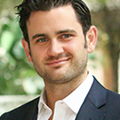Good dental study clubs are alive and well
Here are a few of their responses.
Dr. Russ Jensen from Boise, Idaho:
I'm a relatively new grad (2013), so my experience with study clubs has been limited, but I do believe I’ve found a good one. Half a dozen GPs and a few specialists meet once a month at a local dental lab. The evening is usually sponsored by a dental vendor who provides a catered dinner and then has five to 10 minutes to present while we eat and get started. From there we jump into case presentations. Each GP brings a “case of the month.” This is usually something we’re struggling with, something that went wrong and we learned from it, or something that went really well and we want to share.
These cases are usually documented with photos and/or models. The cases are then discussed for 10 to 20 minutes, during which we review various aspects of the treatment. Each meeting covers a wide variety of topics and is very informative as the knowledge contributed by the specialists helps us to broaden our thinking as to what is possible, depending on what we’re trying to accomplish. The discussion also allows people to contribute their own tips and experiences. The conversation is very open and allows people to share without holding back for fear of judgement. I know this is similar to the Spear groups, but instead of watching a video that spurs discussion, our conversation is centered around the cases people bring.
Dr. David Peterson from Salk Lake City, Utah:
The AGD Master Track in Utah is a great, not-stale study club with no corporate influence. I’m the chairman at this time, but two other guys created it and deserve all the credit—Joseph Mirci and Grant Quayle are the guys who make this organization worth attending. I appreciate them both as just great people. If you plan to do an article about not-stale, no-politics, study clubs, ours is the best in the country.
Dr. Jesse Harris in Mechanicsville, Virginia:
I recently started a study club in Hanover County, Virginia. I was a general dentist for five years before I went back to specialize, and I’ve been active with dental societies in Ohio, Alaska, and now Virginia. Most of the clubs I attended had been around for years. They usually took place in upscale hotels or golf clubs, and were generally stuffy. The lectures were boring and uninspired. What I’ve noticed now is that most of the clubs or societies I frequent are dominated by specialists. Why I don’t know. Are they more motivated? Are they trolling for referrals? At any rate, I decided we needed a low pressure, laid back setting that doesn’t require a sport coat. We have our meetings once a month at Center of the Universe Brewing in Ashland, Virginia. I invited everyone in the Hanover area, general dentists and specialists. Right now speakers are scheduled through May 2017 and range from dentists speaking about TMD to neurologists speaking about trigeminal neuralgia.
I’m in the process of getting PACE approval so we can provide CE. Food is catered from various are restaurants. We had about 30 at the first meeting and have had between 15 and 20 at the subsequent meetings. We only started in September 2016 so it’s very young, but the response has been positive. Some docs bring their spouses because they’re into beer. I don’t know how long it will last, but we shall see!
Dr. Philip Milstein in Belmont, Massachusetts:
Study clubs need to start thinking in terms of helping people. We need to work to accommodate people as well as make a living. This is a different concept. Our area has too many dentists and not enough paying patients.
Finally, Dr. Victor Martel from West Palm Beach:
Study clubs, when done properly, can be exciting, highly informative, and a tool for practice growth. After 30 years of practice, I’ve been a part of numerous clubs, some good, many boring, or worse, they were simply social clubs. In order to evaluate types of clubs, it’s necessary to observe the types of dentists who attend and what each hopes to gain from the experience.
The first is the founder of the club, which is usually a specialist hoping to generate referrals through social interaction. If this is the only motivation, the club will appear as a one-sided commercial with very little benefit to the other attendees. Second is that the attendee is simply out for a good meal, CE, and friendly conversation. Many times this type will not be of any contributing benefit to the group, and sometimes it will be a distraction. Third is the attendee who is also a specialist or GP invited to contribute information from his or her field of specialty, but is another self-promoter and talks about his skill sets more than helps educate. This will eventually bore the group and detract from learning. Fourth, the quiet attendee who wants to learn but never contributes to the discussion. Finally, the attendees who are the heart of the club, humble but very knowledgeable, always willing to learn, open minded, and who contribute just enough to be helpful. Their presence is always missed when they aren't at a meeting. A club full of this type of attendee makes for an exciting and always-growing club.
After the club is full, how it is run is crucial. Some clubs invite multiple speakers in one year for lectures. Although this appears to be exciting, in many cases it can cause confusion within the group due to the differences in opinion of the guest speakers, leaving the attendees with nothing to improve their practices. Other clubs present one case per meeting to discuss, but without a common foundational knowledge of many aspects of dentistry, it quickly becomes differences of opinion and more confusion.
The most effective clubs I’ve experienced stress a consistent message of a particular topic that the attendees matriculate through with a single speaker for each topic. This involves all aspects of dentistry, including practice management, communication, as well as dentistry as a whole. Although this type of club takes more time to develop, it is incredibly rewarding and directly improves the bottom line of all involved.
In this day and age of dentists isolating themselves in fear of competition, it’s even more important to form clubs that benefit everyone involved, including our patients who will receive improved care.
RECENT EDITORIALS BY DR. CHRIS SALIERNO:
Dental study clubs need a makeover
I’d rather invest in dentistry than in Wall Street
Dentists: Your poor, poor inbox …
For the most current practice management headlines, click here.
For the most current dental headlines, click here.
About the Author

Chris Salierno, DDS
Chief Editor, Dental Economics
Chris Salierno, DDS, is the chief editor of Dental Economics and the editorial director of the Principles of Practice Management and Group Practice and DSO Digest e-newsletters. He is also a contributing author for DentistryIQ and Perio-Implant Advisory. He lectures and writes about practice management and clinical dentistry. He maintains a blog to answer patient questions at ToothQuest. Dr. Salierno maintains a private general practice in Melville, New York. You may contact him at [email protected].
Updated Dec. 4, 2020
